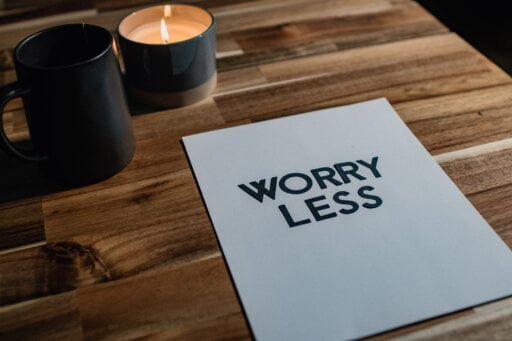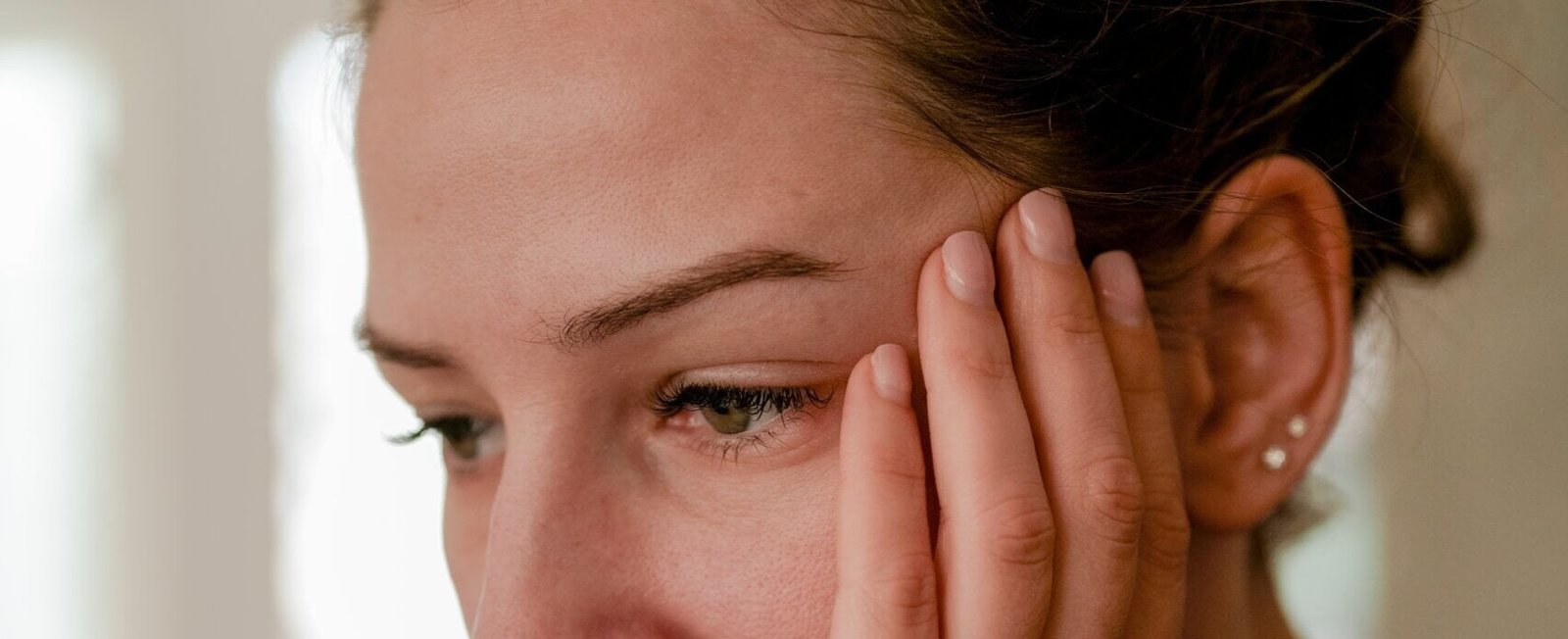Imagine this: you’re going about your day, minding your own business, when suddenly a wave of unease washes over you. Your heart starts racing, your palms get clammy, and you feel a knot forming in your stomach. But here’s the catch – there’s no apparent reason for this sudden onset of anxiety. It’s like a bolt out of the blue, leaving you puzzled and bewildered. In this article, we’ll explore the mysterious phenomenon of sudden anxiety for no reason, uncovering its potential causes and providing some helpful strategies on how to cope with this unexpected visitor. So, fasten your seatbelts and get ready to untangle the enigma of spontaneous anxiety!
Understanding Sudden Anxiety
Anxiety is a common emotional response to stress. It is a feeling of unease or fear that often manifests as worrying thoughts and physical discomfort. While anxiety is a normal part of life and can even be helpful in certain situations, sudden anxiety can be particularly overwhelming and debilitating. In this article, we will explore what anxiety is, the different types of anxiety disorders, and the possible causes of sudden anxiety.
What is Anxiety?
Anxiety is a natural reaction to potential threats or stressful situations. It is your body’s way of preparing you to deal with challenges. It can motivate you to take action, sharpen your focus, and enhance your performance. However, anxiety becomes a problem when it occurs unexpectedly, excessively, or without any identifiable trigger. It can interfere with your daily life, relationships, and overall well-being.
Types of Anxiety Disorders
There are several types of anxiety disorders, each with its own unique set of symptoms. Generalized Anxiety Disorder (GAD) is characterized by persistent and excessive worry about everyday situations. Panic Disorder involves recurrent and unexpected panic attacks, which are intense episodes of fear with physical symptoms such as racing heart, shortness of breath, and chest pain. Social Anxiety Disorder is marked by a fear of being judged or humiliated in social situations. Other common anxiety disorders include Specific Phobias, Obsessive-Compulsive Disorder (OCD), and Post Traumatic Stress Disorder (PTSD).
Causes of Anxiety
Anxiety is a complex condition influenced by a variety of factors. It can be caused by a combination of genetic, environmental, and psychological factors. Family history of anxiety or mental health disorders can increase your risk of developing anxiety. Traumatic experiences, such as abuse or witnessing a distressing event, can also trigger anxiety. Additionally, certain medical conditions, substance abuse, and imbalances in brain chemistry can contribute to the development of anxiety disorders. Understanding the underlying causes of anxiety is essential in order to effectively manage and treat sudden anxiety.
Sudden Anxiety: Symptoms and Effects
Sudden anxiety can catch you off guard and leave you feeling overwhelmed. It is important to recognize the symptoms and understand the effects it can have on your overall well-being.
Recognizing Sudden Anxiety
Recognizing sudden anxiety is crucial in dealing with it effectively. Common signs of sudden anxiety include a rapid heartbeat, shortness of breath, chest tightness, sweating, trembling, and a sense of impending doom or danger. You may also experience racing thoughts, difficulty concentrating, restlessness, and a strong urge to escape the situation. These symptoms can be distressing and interfere with your ability to function normally.
Physical Symptoms of Sudden Anxiety
Sudden anxiety can have various physical manifestations. It activates the body’s fight-or-flight response, causing physiological changes that prepare you to face a perceived threat. These changes include increased heart rate, elevated blood pressure, rapid breathing, muscle tension, and dilation of the pupils. These physical symptoms can be alarming and can sometimes exacerbate the anxiety itself.
Emotional and Psychological Effects
In addition to the physical symptoms, sudden anxiety can also have significant emotional and psychological effects. It can lead to feelings of fear, panic, uncertainty, and a loss of control. Sudden anxiety can affect your mood, causing irritability, restlessness, and a sense of impending doom. It can also disrupt your ability to think clearly, concentrate, and make rational decisions. Over time, unmanaged anxiety can lead to chronic stress, depression, and even impact your self-esteem and relationships.

Triggers of Sudden Anxiety
Various factors can trigger sudden anxiety. Understanding these triggers can help you identify potential causes and develop strategies to manage and prevent sudden anxiety episodes.
Stress and Overwhelm
High levels of stress and feeling overwhelmed can trigger sudden anxiety. Excessive workload, financial pressures, relationship issues, or major life changes can all contribute to an increase in anxiety symptoms. Learning effective stress management techniques and practicing self-care can help reduce the impact of stress on your mental well-being.
Traumatic Experiences
Past traumatic experiences, such as accidents, abuse, or witnessing a distressing event, can leave a lasting impact on your mental health. These experiences can trigger sudden anxiety, often in the form of panic attacks or flashbacks. Seeking therapy or counseling can be beneficial in processing and overcoming traumatic events.
Environmental Factors
Certain environmental factors can contribute to sudden anxiety. Loud noises, crowded spaces, or being in unfamiliar situations can create a sense of unease and trigger anxiety symptoms. Identifying your personal triggers and finding ways to create a calm and safe environment can help minimize sudden anxiety episodes.
Genetic Predisposition
There is evidence to suggest that genetics can play a role in the development of anxiety disorders. If you have a family history of anxiety or mental health conditions, you may be more prone to experiencing sudden anxiety. It is important to be aware of your family’s medical history and seek support if needed.
Exploring Panic Attacks
Panic attacks are intense episodes of fear and anxiety that can be sudden and overwhelming. Understanding the difference between anxiety and panic attacks, as well as their triggers, is essential in managing sudden anxiety effectively.
Difference Between Anxiety and Panic Attacks
While anxiety and panic attacks can have similar symptoms, there are distinct differences between the two. Anxiety is a general feeling of unease or worry, while panic attacks are sudden and intense bouts of fear. Panic attacks often come on abruptly and reach their peak within minutes, causing physical symptoms such as heart palpitations, sweating, and dizziness. Understanding the distinction between anxiety and panic attacks can help you identify and address your specific symptoms.
Sudden Onset of Panic Attacks
Panic attacks can occur without warning and without an immediate trigger. This can make them particularly distressing and difficult to manage. Sudden onset panic attacks can leave you feeling out of control and fearful of future attacks. Seeking professional help, such as therapy or counseling, can aid in understanding and coping with panic attacks effectively.
Common Triggers for Panic Attacks
Although panic attacks can occur without an obvious cause, certain triggers can contribute to their onset. These triggers can vary from person to person but commonly include specific phobias, social situations, major life changes, and traumatic experiences. Identifying your personal triggers and working with a mental health professional can help you develop strategies to manage and prevent panic attacks.

Debunking Anxiety Myths
There are many misconceptions surrounding anxiety that can perpetuate stigma and hinder individuals from seeking help. By debunking these myths, we can foster a better understanding of anxiety and promote mental health awareness.
Anxiety is Not Always Rational
One common myth about anxiety is that it is always rational. In reality, anxiety can be triggered by irrational fears or worries. Individuals with anxiety disorders may experience intense anxiety in response to minor or everyday situations. Understanding that anxiety can be triggered by irrational thoughts or fears can help reduce self-blame and promote self-compassion.
Anxiety Can Occur Without an Obvious Cause
Another myth is that anxiety always has an obvious cause. While external factors can contribute to anxiety, sudden anxiety can occur without a clear trigger. It is important to recognize that anxiety can arise from internal factors such as stress, imbalances in brain chemistry, or genetic predisposition. Seeking support from professionals can help identify and address these underlying causes.
It’s Not Always ‘Just in Your Head’
Anxiety is often dismissed as being “all in your head,” implying that it is not a valid or serious condition. However, anxiety is a real and complex disorder that can have significant physical, emotional, and psychological effects. It is essential to acknowledge the impact of anxiety on individuals and provide the necessary support and resources for their well-being.
Coping Strategies for Sudden Anxiety
While sudden anxiety can feel overwhelming, there are strategies you can employ to cope with and alleviate the symptoms. These coping strategies can help you regain a sense of control and reduce the impact sudden anxiety has on your daily life.
Deep Breathing and Relaxation Techniques
Deep breathing exercises and relaxation techniques can help calm your body and mind during episodes of sudden anxiety. Taking slow, deep breaths and focusing on your breath can activate the body’s relaxation response and reduce anxiety symptoms. Additional relaxation techniques, such as progressive muscle relaxation or guided imagery, can also be beneficial in promoting relaxation.
Grounding Exercises
Grounding exercises involve redirecting your attention to the present moment and grounding yourself in reality. Engaging your senses by paying attention to your surroundings, touching objects, or focusing on rhythmic movements can help distract from anxious thoughts. Grounding exercises can help shift your focus away from anxiety and provide a sense of stability during moments of sudden anxiety.
Mindfulness and Meditation
Practicing mindfulness and meditation can be effective in managing sudden anxiety. Mindfulness involves paying attention to the present moment without judgment, while meditation focuses on calming the mind and promoting relaxation. Regular practice of mindfulness and meditation can help reduce anxiety symptoms, increase self-awareness, and develop a more positive outlook.
Seeking Professional Help
In some cases, coping strategies alone may not be enough to manage sudden anxiety. Seeking professional help, such as therapy or counseling, can provide you with additional support and guidance. A mental health professional can help you develop personalized coping strategies, address underlying causes of anxiety, and provide valuable tools for long-term management.

Self-Care for Managing Anxiety
In addition to coping strategies, incorporating self-care practices into your daily routine can contribute to the effective management of anxiety. Taking care of your overall well-being can help reduce the frequency and severity of sudden anxiety episodes.
Maintaining a Healthy Lifestyle
Maintaining a healthy lifestyle can have a positive impact on your mental health. Engaging in activities that you enjoy, practicing hobbies, and spending time with loved ones can boost your mood and reduce anxiety. Prioritizing self-care and setting aside time for relaxation is essential in managing sudden anxiety.
Regular Exercise and Physical Activity
Exercise has been shown to have numerous benefits for mental health, including the reduction of anxiety symptoms. Engaging in regular physical activity can help release endorphins, improve mood, and promote relaxation. Finding an exercise routine that you enjoy and incorporating it into your daily life can be an effective way to manage sudden anxiety.
Adequate Sleep
Getting enough sleep is crucial in maintaining optimal mental health. Lack of sleep can exacerbate anxiety symptoms and make it more challenging to cope with sudden anxiety. Establishing a consistent sleep schedule, creating a relaxing bedtime routine, and practicing good sleep hygiene can contribute to better sleep quality and overall well-being.
Balanced Diet
Nutrition plays a significant role in our mental health. Consuming a balanced diet that incorporates a variety of nutrients can support brain function and help regulate mood. Avoiding excessive consumption of sugary or processed foods and opting for whole foods can have a positive impact on your overall well-being and reduce anxiety symptoms.
Reducing Alcohol and Caffeine Intake
Alcohol and caffeine can both have a significant impact on anxiety symptoms. While alcohol may initially provide temporary relief, it can worsen anxiety in the long run. Similarly, caffeine, which is a stimulant, can increase restlessness, heart palpitations, and anxiety. Reducing or avoiding alcohol and caffeine intake can help manage sudden anxiety more effectively.
Support Systems and Resources
Building a support network and accessing relevant resources can greatly assist in managing sudden anxiety. Having a strong support system and access to helpful information can provide you with the necessary tools and encouragement to navigate through your anxiety journey.
Building a Support Network
Establishing a support network of family members, friends, or support groups can provide a valuable source of comfort and understanding. Surrounding yourself with individuals who are empathetic and supportive can help alleviate feelings of isolation and provide reassurance during episodes of sudden anxiety.
Therapy and Counseling
Therapy or counseling can be an invaluable resource for individuals experiencing sudden anxiety. A mental health professional can provide you with guidance, support, and evidence-based techniques to manage your anxiety. Cognitive-Behavioral Therapy (CBT), Exposure Therapy, and Mindfulness-Based Stress Reduction (MBSR) are among the many effective therapeutic approaches for anxiety disorders.
Support Groups and Online Communities
Support groups and online communities can offer a safe and non-judgmental space for individuals with anxiety to connect, share experiences, and provide mutual support. These platforms can be particularly helpful in reducing feelings of isolation and gaining insight from others who have similar experiences.
Books and Educational Materials
There are numerous books, articles, and educational materials available that provide valuable information and strategies for managing anxiety. Educating yourself about anxiety, its causes, and effective coping mechanisms can empower you to take control of your anxiety journey. It is essential to ensure that the resources you choose are reputable and evidence-based.
When to Seek Professional Help
While self-help strategies can be beneficial, there are instances where professional help is necessary to effectively manage sudden anxiety. It is important to recognize when your symptoms are persistent, debilitating, and significantly impacting your daily life.
Persistent and Debilitating Symptoms
If your anxiety symptoms persist and significantly interfere with your ability to function in various areas of your life, it may be time to seek professional help. Symptoms that last for several weeks or months without improvement may indicate the need for additional support.
Interference with Daily Life
If sudden anxiety is causing difficulties in your personal relationships, work performance, or other areas of life, it is important to seek professional help. Anxiety should not hinder your ability to carry out daily tasks or enjoy meaningful activities.
Impact on Relationships and Work
If your sudden anxiety is straining relationships with family, friends, or colleagues, it is crucial to reach out for support. Anxiety can create misunderstandings and tension, and addressing its impact on relationships is vital for both your well-being and the well-being of those around you.
Co-occurring Mental Health Conditions
If you have a history of co-occurring mental health conditions, such as depression or substance abuse, it is essential to seek professional help for sudden anxiety. These conditions can interact and reinforce each other, requiring specialized treatment and management.
Final Thoughts on Sudden Anxiety For No Reason
Understanding sudden anxiety, its causes, and effective coping strategies is crucial in managing this overwhelming condition. It is important to remember that anxiety is a common experience and seeking help is not a sign of weakness. Taking steps towards accepting, understanding, and managing anxiety can lead to a more fulfilling and resilient life. By fostering emotional resilience, seeking support, and prioritizing self-care, you can navigate the challenges of sudden anxiety and move towards a path of recovery and well-being. Remember, you are not alone, and there is help available.
1. Why did I get anxiety all of a sudden? Sudden anxiety can stem from various factors, including stress, hormonal changes, unresolved emotions, or a triggering event. Identifying the root cause is crucial.
2. Why am I feeling anxiety for no reason? Feeling anxiety without an apparent reason may be linked to subconscious stressors, underlying concerns, or a heightened state of alertness within the body.
3. What is the 333 rule for anxiety? The 333 rule involves acknowledging three things you see, hear, and feel, providing a grounding technique to manage anxiety in the moment.
4. What causes anxiety attacks for no reason?
- Anxiety attacks without an obvious trigger may result from an accumulation of stress, heightened sensitivity, or an underlying anxiety disorder.
5. How do I fix sudden anxiety? Coping strategies include deep breathing, mindfulness, positive self-talk, and addressing underlying stressors. Professional support may also be beneficial.
6. Can anxiety come unexpectedly? Yes, anxiety can manifest unexpectedly, triggered by internal or external factors. Developing coping mechanisms can help navigate such moments.
7. What is floating anxiety? Floating anxiety refers to a general sense of unease without a specific cause. It may linger and affect daily life. Identifying triggers is essential for management.
8. How do I know it’s anxiety and not something else? Consulting with a healthcare professional is crucial for an accurate diagnosis. Anxiety symptoms may include racing thoughts, restlessness, and physical tension.
9. Why do I feel anxious even though nothing’s wrong? Anxiety doesn’t always require an external cause. Internal factors, chemical imbalances, or habitual thought patterns can contribute to persistent anxiety.
10. Is it anxiety or am I ill? – Seeking medical advice helps differentiate between anxiety and physical illness. Physical symptoms of anxiety may resemble certain health conditions.
11. What is like anxiety but isn’t? – Conditions like hyperthyroidism, heart issues, or other mental health disorders may mimic anxiety symptoms. Consulting a healthcare professional is essential for clarity.
12. What is the 80 20 rule anxiety? – The 80/20 rule in anxiety suggests that 80% of fears may not materialize, emphasizing the importance of challenging irrational thoughts and fears.
13. Should I push through anxiety? – Pushing through anxiety depends on the situation. Gentle exposure to manageable stressors can be beneficial, but seeking support is crucial for severe anxiety.
14. What not to do with anxiety? – Avoiding self-medicating, suppressing emotions, or isolating oneself is important. Seeking professional help and implementing healthy coping mechanisms are recommended.
15. What is the rarest anxiety? – Specific phobias, such as the fear of specific objects or situations, can be considered rare. However, any form of anxiety should be addressed for overall well-being.
16. When is anxiety serious? – Anxiety becomes serious when it significantly impairs daily functioning, affects relationships, or leads to physical health issues. Seeking professional help is advised.
17. Is it anxiety or ADHD? – Distinguishing between anxiety and ADHD requires professional evaluation. While they can coexist, accurate diagnosis is crucial for effective treatment.
More on Sudden Anxiety For No Reason: here.
